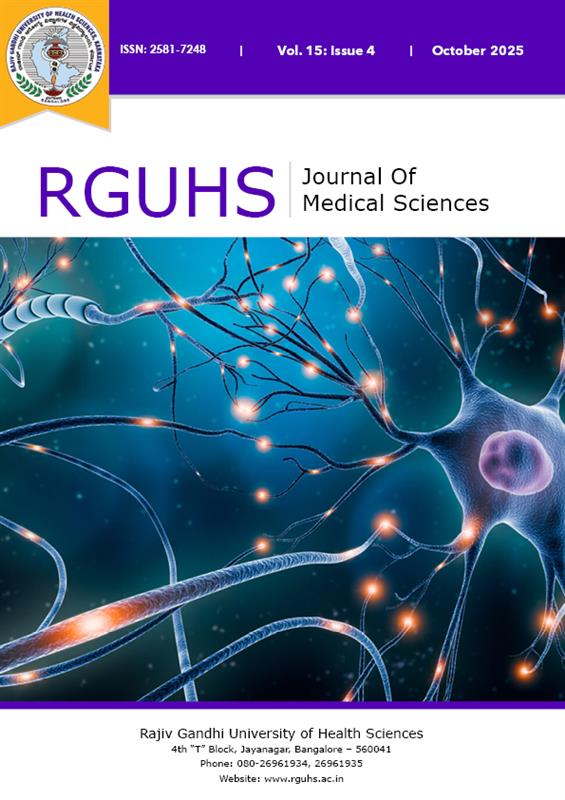
RGUHS Nat. J. Pub. Heal. Sci Vol: 15 Issue: 4 eISSN: pISSN
Dear Authors,
We invite you to watch this comprehensive video guide on the process of submitting your article online. This video will provide you with step-by-step instructions to ensure a smooth and successful submission.
Thank you for your attention and cooperation.
Baldua V.* , Castellino N.* , Kadam P.* , Avasthi B.** , Kabra N.***
*PICU , **Department of Paediatrics and PICU, ***Chief : Critical Care Units Surya Children’s Hospital, Mumbai
Corresponding author:
Dr. Vishal Baldua Surya Children`s Hospital , Santacruz West , Mumbai 400 054 vishalbaldua@gmail.com

Abstract
Introduction: In the diagnosis and management of sepsis, culture positivity yield is quite low and no single biomarker can diagnose sepsis early and reliably .
Aim & Objective: To compare the roles of Procalcitonin (PCT) and C - reactive protein (CRP) in the diagnosis of paediatric sepsis .
Methods: This prospective observational study was conducted between February 2014 to December 2014 at the tertiary level Paediatric Intensive Care Unit at Surya Children's Hospital, Mumbai. All patients admitted in PICU with suspected sepsis whose CBC, CRP, Procalcitonin and blood cultures were sent prior to initiation of antibiotics or escalation of existing antibiotics in case of new or worsening signs ,were included .
Results: Out of 89 children matching the inclusion criteria, 60 (67.4%) had positive CRP values (>6mg/dl) while 50(56.2%) were PCT positive. 10 (11.2%)of these had PCT between 0.5 and 2 ng/ml and remaining 40(45%)had levels more than 2mg/ml of PCT. The sensitivity and specificity of CRP was 89% and 35% respectively. At cut-off of 0.5ng/ml, sensitivity of PCT was 100% but the specificity was only 48%. This improves at a higher PCT of more than 2ng/ml to 88.9% and 60% respectively. Blood cultures were positive in only 9 cases and may be attributed to prior antibiotic usage .
Conclusion: PCT at cut-offs of >2ng/ml may be a better biomarker than CRP which is commonly used . Larger multicentric pediatric trials are needed and PCT may help rationalize antibiotic usage and duration in pediatric sepsis similar to some evolving practices in adult ICUs.
Keywords
Downloads
-
1FullTextPDF
Article
None
Supporting File
References
None